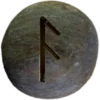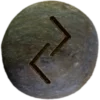Last Updated on December 23, 2024
Table of Contents


Skalds (Old Norse: Skáld, pronounced SKAHLD) were poets and composers in Norse society who created intricate verse. They played an essential role in preserving history, mythology, and heroic deeds through oral tradition. Skalds served at royal courts and in noble households, crafting poems that honored leaders, celebrated victories, or conveyed moral lessons. Their work required skill, creativity, and a deep understanding of language and culture.
Their poetic styles often relied on complex structures, such as dróttkvætt (pronounced DROHT-kvet), a meter involving strict syllable counts and alliteration. This meter demonstrated the skald’s mastery over language and rhythm. Skaldic poetry differed from the simpler eddic poems, focusing more on specific historical events rather than broad mythological themes. ![]()
Skalds often recited their compositions in public, elevating their status in Norse society. They were highly respected for their ability to immortalize people and events in verse. Several famous skalds, such as Egill Skallagrímsson, are featured in sagas like Egils saga. This saga highlights Egill’s poetic skill and his ability to compose extemporaneously under duress, showcasing the esteem held for skaldic abilities.
The Icelandic sagas and the Poetic Edda contain references to skalds and their works. Poems such as Hákonarmál and Eiríksmál praise Norse leaders like Hákon the Good and Erik Bloodaxe, demonstrating the symbiotic relationship between rulers and their poets. These works not only honored the dead but also served as tools for political propaganda. Skalds preserved the essence of their culture, keeping it alive for future generations.
Elder Futhark Runes Associated with Skalds
The Ansuz rune (ᚨ, pronounced AHN-sooz) connects to skalds through its association with communication, wisdom, and inspiration. This rune symbolizes divine guidance and poetic expression.
The Kenaz rune (ᚲ, pronounced KAY-nahz) aligns with skalds by representing creativity, knowledge, and the torch of illumination. It reflects the spark of poetic insight. ![]()
Importance to Asatruar
Skalds remain a source of inspiration for Asatruar, emphasizing the power of words and the preservation of traditions. Their poetry provides a bridge to the past, offering insight into Norse values, beliefs, and historical events. Asatruar value skalds’ ability to weave stories that honor ancestors and reflect cultural identity. Skaldic tradition encourages modern practitioners to express themselves creatively while staying connected to their roots. The emphasis on storytelling and memory strengthens bonds within the community and ensures cultural continuity.


